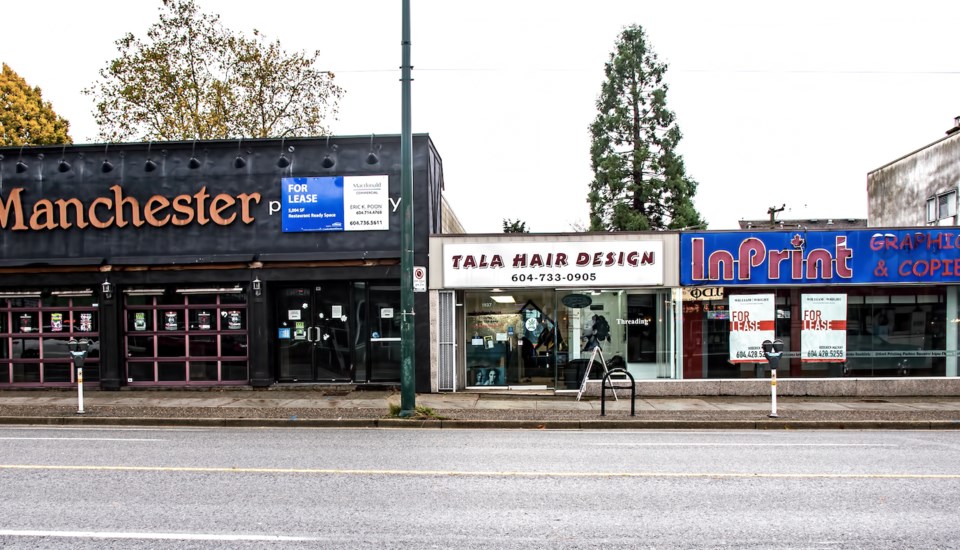Two years after the BC Liberal opposition and small-business commercial tenants called for its elimination, the B.C. government will temporarily stop charging a speculation and vacancy tax on homes that do not and may never exist.
Under current the tax regime, commercial tenants under triple-net leases – where tenants are also responsible for property taxes – or owners are forced to pay the provincial speculation and vacancy tax if the property has been classified for future residential development.
The taxes therefore apply to non-existing homes that may or may not be built in the air space above the property.
Commercial tenants who have been required to pay the speculation and vacancy tax may finally get some relief, but it is for only one year and it does not cover those about to write new leases.
Provincial Finance Minister Selina Robinson announced April 27 that tenants under triple-net lease agreements, can now apply to have the speculation and vacancy taxes scrubbed.
“We will temporarily remove the speculation and vacancy tax liability for 2020 for property owners that meet certain conditions,” said Robinson. “Both property owners and tenants can now apply for the remission to ensure the people we are trying to help, the tenants, don’t have to wait for the owner to apply.”
Robinson said fewer than 65 properties, most of them in Vancouver, are affected by the new measure, which targets landlords who were able to classify their commercial properties as residential, with the understanding they would be developing a residential component in the unbuilt airspace above the buildings.
Jane McFadden, executive director of the Kitsilano West 4th Avenue Business Association, however, estimates there’s at least 70 businesses in her area alone that are impacted by the speculation and vacancy tax.
Robinson said those landlords were taxed at a lower rate because residential units were to come, but it seems many of them are not continuing with the development process.
BC Liberal municipal affairs critic Todd Stone tabled a private member’s bill in October 2019 to end the practice of taxing unbuilt homes.
He argued that speculative tax based on development potential of the site and the “air above it” had resulted in a number of Vancouver small businesses closing shop after facing consecutive years of massive increases.
Stone is not impressed with the action on the motion.
On April 28, 2021 Stone tweeted, “This is for one year only, with conditions. Speculation tax should not apply to small businesses - and especially on the air above their heads. Ever. Period.”
Stone’s bill had recommended a system that split the residential and commercial components of a potential development site for tax assessments, a measure backed by small business groups. He is not impressed with the action on the motion.
In an April 28, 2021 tweet Stone noted, “This is for one year only, with conditions. Speculation tax should not apply to small businesses - and especially on the air above their heads. Ever. Period.”
“The purpose of the speculation and vacancy tax is to bring much-needed residential housing supply to the market,” said Robinson. “We encourage property owners who have reclassified their properties with unbuilt airspace as ‘residential’ to continue in the development process to deliver needed housing supply in dense, urban areas.”
To be eligible, the commercial lease must be entered into prior to April 29, 2021, and be valid at the time of application.
The property must contain residential land that is vacant and may not contain a residence or any portion of a residential improvement.
Robinson said the province will continue working with the Union of B.C. Municipalities and stakeholders to find a permanent solution to the concerns of businesses around property assessment and taxation “that won’t create sudden shifts in tax burden to other businesses already challenged by COVID-19.”
To apply for the tax break, eligible owners or tenants should contact the Ministry of Finance at 1-833-554-2323



